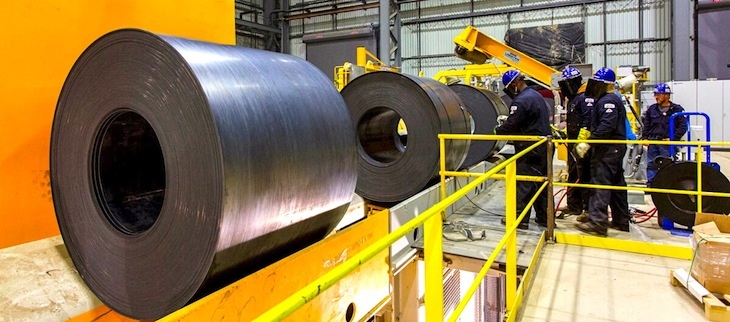A-State’s Center for Advanced Materials and Steel Manufacturing receives $10 million
by March 18, 2024 9:39 am 594 views

A $10 million Congressional appropriation, led by U.S. Sen. John Boozman, R-Ark., will advance plans for the Arkansas State University Center for Advanced Materials and Steel Manufacturing to support the largest steel producing region in the country.
A-State will use the funding to invest in high-tech equipment for a multi-million dollar facility that will advance the rapidly growing steel industry in the Arkansas Delta and throughout Northeast Arkansas. The region is the nation’s leader in steel production, with more than 20 steel-related companies employing some 3,600 workers and another $3 billion in facilities under construction creating another 900 jobs.
The university anticipates close partnerships with steel manufacturers for research, process improvements, testing of advanced materials and steel manufacturing while training a growing, professional workforce for the industry and region.
“Northeast Arkansas is a national leader in steel production, and the A-State Center for Advanced Materials and Steel Manufacturing will play a critical role in providing the research, process improvement and workforce development to support this thriving industry,” A-State Chancellor Todd Shields said. “The Center and these partnerships will fundamentally transform the region and elevate its role as the steel capital of America. Arkansas State benefits from our proximity as the closest research university to current and future steel industry, and we are extremely excited about the successful partnerships that have already developed.”
A timeframe for completing the center was not released.
“On behalf of the A-State community and everyone in Northeast Arkansas, I want to thank Senator Boozman for his leadership, his commitment to our university and this major economic driver of our state and region,” Shields added. “These jobs are more technologically advanced than ever before and require a technology-proficient workforce. It is critical to provide opportunities for home-grown talent from our region to ensure that Arkansas establishes itself as a national leader in advanced materials and steel manufacturing.”
The center will develop mechanical property measurements for steels and other alloys; X-ray diffraction, spectroscopy, and electron microscopy analytical tools; computational materials science investigations of novel materials; and maximize the use of artificial intelligence in the manufacturing process. The quality of steel is dictated by its mechanical properties, and current testing for production facilities in Mississippi County requires expensive transportation costs that delay shipments to buyers.
The comprehensive measurements will be complemented by competencies in artificial intelligence, data science and data analytics, and computational materials science, in which diverse material modeling techniques – including molecular dynamics, phase field modeling, computational fluid dynamics, finite element modeling and systems engineering models – can be used to validate new material formulations and manufacturing processes.
“We look forward to successfully working closely with leaders in the steel industry to implement cutting edge research in advanced materials and steel manufacturing, supported by data science and artificial intelligence,” said Dr. Abhijit Bhattacharyya, inaugural dean of the A-State College of Engineering and Computer Science. “We will help solve industry-related problems and provide faculty and students invaluable opportunities to work side by side with scientists from the steel industry. The programs we are developing will be world class, just like the world class steel mills located in our backyard.”
A-State is reallocating faculty positions to support the center by creating a new department in the college focused specifically on material science, metallurgy, steel manufacturing, supported by data science and artificial intelligence. Faculty and students will work collaboratively with scientists and employees at steel plants around the region.
“This is exactly how a research institution should successfully partner with local industries,” said Provost Calvin White. “We are excited to work with industry partners to find business solutions, grow markets, improve production, expand high-skilled employment opportunities and be a central part of economic development throughout our region, the state, and the nation.”
